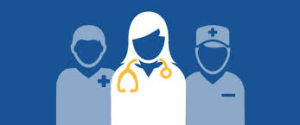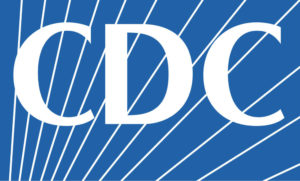The following is the latest coronavirus information from the state and federal governments as of 4:00 p.m. on Friday, August 14.
Pennsylvania Update
Wolf Administration
 The Wolf administration’s COVID-19 Response Task Force for Health Disparity, created in April and led by Lieutenant Governor Fetterman, has presented its report to the governor. The report includes recommendations on health disparities addressing housing, criminal justice, food insecurity, health disparity, education and economic opportunities. Learn more from “Pennsylvania COVID-19 Response Task Force: Health Disparity: Policy Recommendation Report.”
The Wolf administration’s COVID-19 Response Task Force for Health Disparity, created in April and led by Lieutenant Governor Fetterman, has presented its report to the governor. The report includes recommendations on health disparities addressing housing, criminal justice, food insecurity, health disparity, education and economic opportunities. Learn more from “Pennsylvania COVID-19 Response Task Force: Health Disparity: Policy Recommendation Report.”
Department of Health
The Department of Health has published its July report summarizing its inspections of nursing homes. The department’s surveyors conducted 330 nursing home inspections, 295 of them resulting from complaints; 227 of those complaints were COVID-19-related. Learn more from the department’s news release describing its July inspections and its inspection report.
The departments of Health and Aging warned Pennsylvanians about contact tracing scams. Learn more from their news release on such scams.
 Department of Health – by the numbers
Department of Health – by the numbers
- The number of new COVID-19 cases has remained relatively steady for the past two weeks: fewer than late July and more like the beginning of last month.
- The department reports that the number of cases among people between the ages of 19 and 24 now exceeds those among people between the ages of 50 and 64 and those 65 years of age and older. The number of cases among those between 19 and 24 is rising in every part of the state.
- More than 8600 health care workers in the state have contracted COVID-19.
- The number of COVID-19-caused deaths in Pennsylvania over the past four days has been higher than at any time in the past six weeks.
- The number of long-term-care facility residents and staff who have contracted COVID-19 now approaches 24,500. These cases have occurred in 890 such facilities in 61 of the state’s 67 counties.
- The number of Pennsylvanians hospitalized with COVID-19 and those breathing with the help of mechanical assistance have remained relatively steady over the past week.
- 20 percent of the beds in Pennsylvania’s acute-care hospitals are currently unoccupied, as are 25 percent of adult ICU beds, 12 percent of pediatric ICU beds, 39 percent of pediatric beds, and 42 percent of airborne isolation rooms.
- Pennsylvania has experienced 42 confirmed cases of multisystem inflammatory syndrome in children (MIS-C). Another 19 cases are currently under investigation and 12 suspected cases were found not to be MIS-C.
Federal Update
Provider Relief Fund
 HHS announced that it will distribute $1.4 billion in CARES Act Provider Relief Fund grants to nearly 80 free-standing children’s hospitals. Qualifying children’s hospitals must be either an exempt hospital under CMS’s Medicare inpatient prospective payment system or be a HRSA-defined Children’s Hospital Graduate Medical Education facility. Eligible hospitals will receive 2.5 percent of their net revenue from patient care. Qualifying free-standing children’s hospitals will begin receiving grants next week. Learn more from this HHS news release.
HHS announced that it will distribute $1.4 billion in CARES Act Provider Relief Fund grants to nearly 80 free-standing children’s hospitals. Qualifying children’s hospitals must be either an exempt hospital under CMS’s Medicare inpatient prospective payment system or be a HRSA-defined Children’s Hospital Graduate Medical Education facility. Eligible hospitals will receive 2.5 percent of their net revenue from patient care. Qualifying free-standing children’s hospitals will begin receiving grants next week. Learn more from this HHS news release.
Department of Health and Human Services
HHS is giving $6.5 million to two commercial diagnostic laboratories to expand capacity to conduct up to four million additional COVID-19 tests a month. That capacity increase should be seen in early October. Learn more from this HHS news release.
Centers for Medicare & Medicaid Services
The CMS online publication MLN Matters features the article “Quarterly Update for Clinical Laboratory Fee Schedule and Laboratory Services Subject to Reasonable Charge Payment” for clinical diagnostic laboratories that seek reimbursement for services provided to Medicare patients. The article includes policy updates on payments for COVID-19 specimen collection, ordering requirements for tests, coverage for serology tests, payments for tests processed with high-throughput technologies, and more as well as fees and new billing codes. Find it here. The American Medical Association also has published a special report on new COVID-19 CPT coding. Find it here.
Food and Drug Administration
- The FDA has established a new web page with information about importing certain medical devices during the COVID-19 pandemic. It describes procedures for importing devices that have been issued emergency use authorizations and for devices for which an enforcement discretion policy has been published in guidance.
- The FDA recently cleared for marketing in the United States a surgical gown (K200977) and three polymer patient examination gloves (K201530, K201531, K193666). These gloves and gowns are intended to be worn for medical purposes to provide a barrier against potentially infectious materials and other contaminants, including for use during the COVID-19 pandemic.
- The FDA has issued emergency use authorization for commercial equipment that provides continuous renal replacement therapy to treat low weight and low blood volume patients or patients who have acute renal failure, fluid overload, or both as a result of COVID-19 and who cannot tolerate a larger extracorporeal circuit volume in an acute-care environment.
Centers for Disease Control and Prevention
 The CDC has updated its interim laboratory biosafety guidelines for handling and processing specimens associated with COVID-19.
The CDC has updated its interim laboratory biosafety guidelines for handling and processing specimens associated with COVID-19.- The CDC has published a new analysis of the value of facility-wide testing for preventing infections in nursing homes.
Resources to Consult
Pennsylvania Department of Human Services
Pennsylvania Department of Health
Centers for Disease Control and Prevention
(To receive this daily update directly, sign up for our mailing list at info@pasafetynet.org.)